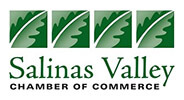What Smart Hustlers Do: Building Lean Without Selling Out
Getting a new venture off the ground isn’t just about vision—it’s about discipline. Some founders approach launch like a shopping spree, racking up costs in the name of “being ready,” while others cut corners so aggressively they set themselves up to fail. The real art is in managing lean beginnings without looking or feeling cheap. That balancing act, between staying affordable and still delivering something people can trust, is where good strategy separates itself from blind optimism.
Know the Difference Between Essentials and Vanity
Too often, early spending gets tangled up in optics. A logo that cost four figures or a website built with layers of unnecessary features can feel like forward motion, but they rarely impact the bottom line at launch. What's more useful is spending on functionality—tools and infrastructure that directly support your product or service. A sleek office space may feel validating, but if it doesn’t change how customers engage or improve your offering, it's a luxury dressed up as a need.
Legal Doesn’t Have to Mean Lavish
Forming a legal entity is one of the first official steps to legitimacy, but it doesn’t need to drain your early funds. State filing fees can range widely depending on where you’re launching, so it's important to check local costs before setting expectations. Many online formation services now offer customizable packages that bundle essentials like EIN registration and ongoing registered agent services. Choosing to start an LLC with ZenBusiness streamlines the process without inflating your startup budget.
Leverage Pre-Sales and Community Buy-In
There’s a smarter way to gauge demand than guessing and hoping. Pre-sales, waitlists, or community-backed launches don’t just generate early revenue—they validate whether what’s being built even matters. When people buy into something before it exists, they become emotionally invested, and that’s often worth more than any ad campaign. Using real-world interest as a signal keeps development honest and eliminates the need for speculative spending on features nobody asked for.
Use Off-the-Shelf Tools Until Custom Is Justified
There’s a point where building your own software, system, or app makes sense. That point is rarely Day One. Off-the-shelf tools—whether it’s Shopify, Notion, Airtable, or Canva—have grown in power and adaptability to the point that they serve most launch needs well. Custom work often brings with it expensive developers, bugs, and delays, while proven tools let teams stay focused on traction. Once product-market fit is real, the conversation can shift to scalability.
Brand by Voice, Not Just by Aesthetic
Founders often conflate branding with design, pouring funds into logos and color palettes while neglecting the actual tone of their communication. The truth is, the best early-stage branding comes from a clear, consistent voice—one that tells a story and speaks like a real human. Social posts, product descriptions, even email receipts offer a chance to build trust and personality without blowing the bank. When people feel they “get” a brand, they rarely care if it was dressed up by an award-winning agency.
Delay Hiring, Increase Collaboration
The instinct to hire fast is often fueled by fear or pressure. But hiring too early can be a budget killer, especially if roles aren’t clearly defined or immediately revenue-driving. In contrast, working with independent contractors or collaborators gives startups flexibility to scale up or down without long-term commitments. It’s easier to test working relationships and adjust scope when the team isn’t locked into payroll. Plus, the talent pool for contractors tends to be broader than what an early-stage company could afford full-time.
Mistakes Are Cheaper When You’re Lean
The biggest argument for staying lean isn’t just about saving money—it’s about failing smart. When a venture is bloated with early investment, mistakes get expensive fast. But a lean setup allows room for trial and error without existential risk. This flexibility leads to more experimentation, faster pivots, and a healthier feedback loop with customers. It’s easier to course-correct when the ship isn’t weighed down by gold-plated lifeboats.
Keeping costs down doesn’t mean thinking small—it means thinking clearly. The founders who endure are the ones who know how to be scrappy without cutting corners, generous without being naive, and ambitious without burning cash for ego’s sake. Success isn’t about how much is spent before launch—it’s about what kind of momentum is built afterward. When quality is non-negotiable but excess is optional, a business earns something more valuable than money: trust.
Discover the vibrant heart of the Salinas Valley by joining the Salinas Valley Chamber of Commerce, where businesses thrive and community connections flourish!
